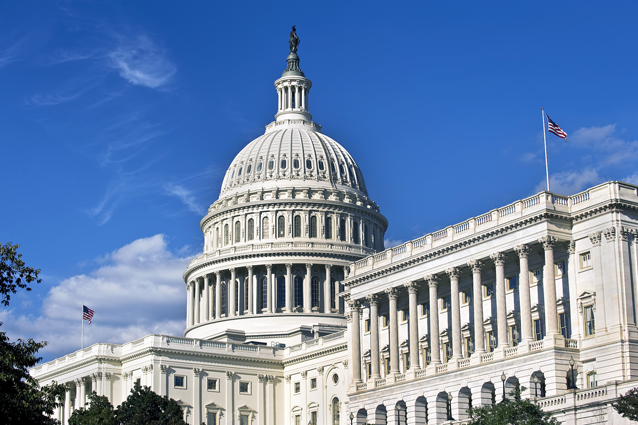Note
Three Key Outcomes of the “One Big Beautiful Bill Act” on US Manufacturing and Innovation
The budget reconciliation bill passed by the House has important implications for US technology investment, manufacturing, and innovation.

Rhodium Group’s Energy & Climate practice uses a multidisciplinary, data-driven approach to produce unique, independent insights into global energy dynamics, greenhouse gas emissions, and climate change.
We help public and private decision-makers understand what kind of climate future we are on track for, and what matters most for reducing greenhouse gas emissions—at the local, state, national, and international levels. By combining policy expertise with a suite of detailed energy-economic models, our research provides data-driven insights into the impacts of energy and climate change policy and real-world developments on greenhouse gas emissions, energy markets, economic output, and clean technology pathways.
Note
The budget reconciliation bill passed by the House has important implications for US technology investment, manufacturing, and innovation.
Note
The House Ways and Means Committee's proposed language will raise energy costs for American households by as much as 7% in 2035, stifle energy technology innovation, increase pollution, and could put significant investment at risk.
Report
In the first quarter of 2025, clean energy and transportation investment in the United States totaled $67.3 billion, a 6.9% increase from the same period in 2024 but a 3.8% decrease from the previous quarter.
Note
Since the US enacted the IRA, manufacturing has emerged as the fastest-growing segment of investment in clean energy technologies. We assess the state of key clean technology supply chains for solar, wind, batteries, and electric vehicles.
Filters:
Showing 181 – 190 of 220 total results
Report
An RHG-led team of climate scientists, economists and risk analysts assesses the economic risks of climate change in the United States by region of the county and sector of the economy for the Risky Business Project.
Note
Now that the Clean Power Plan proposal is out, what do we know about its potential economic costs?
Note
Whether or not to allow crude oil exports from the US is shaping up to be one of the hottest energy policy topics in Washington in 2014. RHG's Houser and Mohan provide a backgrounder on the debate.

Book
A new book by Trevor Houser and Shashank Mohan analyzes the economic implications of the unconventional oil and gas boom in the US.

Report
Trevor Houser and Beibei Bao analyze natural gas policy and market developments in China and map out the factors that will shape future supply and demand.

Note
Recent EPA data offers a first look at how state-level greenhouse gas emissions have changed over the past few years, and who is responsible for the sharp decline in US emissions between 2010 and 2012.
Note
After a sharp drop last year in response to US sanctions and a European import ban, Iranian crude oil exports have leveled off. The US Congress to looking for new ways to tighten the screws on Tehran.

Note
Greenhouse gas emissions fell twice as fast in Europe in 2011 than in the US. But it was the US that outperformed in 2012. We analyze recent GHG emission developments in the US and EU and discuss the outlook for the coming year.


Note
China’s 12th Five Year Plan includes a bevy of energy targets Beijing hopes to achieve between 2011 and 2015.





